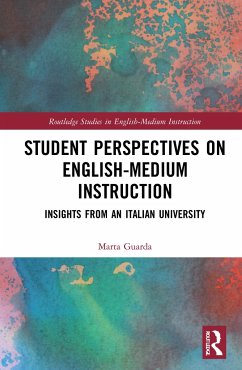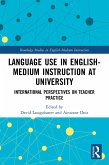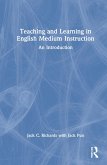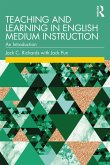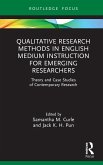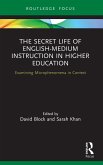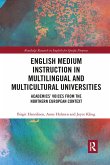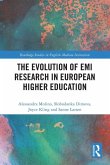This book offers a window into student perceptions of English-Medium Instruction (EMI), building on research from an Italian university to provide a better understanding of attitudes toward EMI in Europe and future directions for cross-country comparative research.
The volume provides context on the current situation with EMI in Italy, unpacking debates around the tensions between the increased competitiveness it brings at the higher education level with the potential detrimental impact of English on local language practices. Seeking to introduce a counterpoint to existing research on lecturer experiences, Guarda draws on a wide range of data, from online questionnaires to semi-structured interviews and a focus group, to
showcase perceptions on EMI from students enrolled in English-Taught Programmes at the University of Padova over a two-year period. The resulting insights contribute to the current literature on EMI toward creating a clearer and more holistic picture of the advantages and challenges of learning through English and implications for quality improvement measures for EMI implementation in Italy, Europe and beyond.
This book will be of interest to scholars in English-Medium Instruction and applied linguistics, especially to those working on issues around language policy, bilingual education and the internationalisation of higher education.
The volume provides context on the current situation with EMI in Italy, unpacking debates around the tensions between the increased competitiveness it brings at the higher education level with the potential detrimental impact of English on local language practices. Seeking to introduce a counterpoint to existing research on lecturer experiences, Guarda draws on a wide range of data, from online questionnaires to semi-structured interviews and a focus group, to
showcase perceptions on EMI from students enrolled in English-Taught Programmes at the University of Padova over a two-year period. The resulting insights contribute to the current literature on EMI toward creating a clearer and more holistic picture of the advantages and challenges of learning through English and implications for quality improvement measures for EMI implementation in Italy, Europe and beyond.
This book will be of interest to scholars in English-Medium Instruction and applied linguistics, especially to those working on issues around language policy, bilingual education and the internationalisation of higher education.

